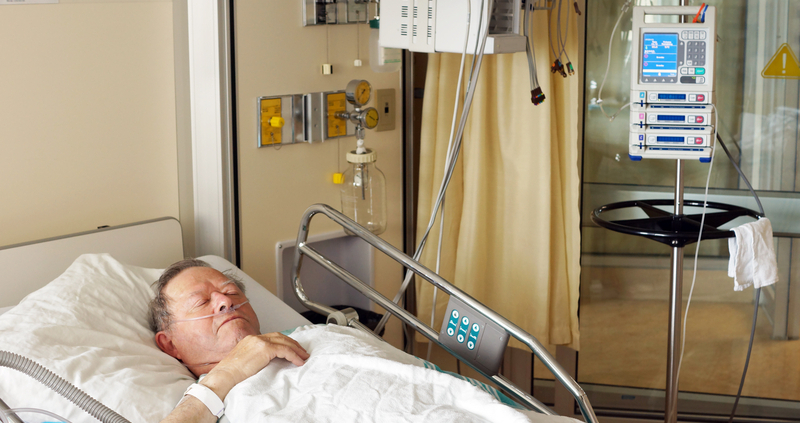The Most Common Hospital Acquired Infections
In this post we’ll discuss some of the most common hospital acquired infections and explore the impact they can have on patient outcomes.
What is a Healthcare Associated Infection (HAI or HCAI)?
Healthcare associated infections (HAI, or HCAI) are infections staff and patients contract through spending time in healthcare settings such as GP surgeries, care homes, and hospitals.
Some of these infections can develop as a direct result of healthcare treatment. Others are communicable diseases, and can develop and spread from person-to-person, or when staff or patients come into contact with pathogens in the air or on surfaces.
The Most Common Hospital Acquired Infections
Surgical Site Infections (SSIs)
Surgical site infections (SSIs) may comprise up to 20% of all hospital acquired infections, with at least 5% of surgical patients developing a wound infection following their procedure.
They usually occur when surgical incisions are contaminated by microorganisms from the patient’s own body, though it’s also possible for patients to develop SSIs from outside sources.
Examples of SSIs include:
- aureus
- Salmonella
- Shigella
- Klebsiella
- coli
SSIs can be life-threatening for patients, yet even mild infections can prolong hospital stays considerably. This can leave patients vulnerable to other hospital acquired infections while also creating a significant financial burden for the hospital. And when the NHS is facing such a huge backlog, anything that delays a patient’s hospital discharge should be considered a major issue.
Methicillin-Resistant Staphylococcus Aureus (MRSA)
Methicillin-Resistant Staphylococcus Aureus (MRSA) is a form of pneumonia, a respiratory tract infection. The infection results in lung inflammation and a build-up of fluid that can cause breathing difficulties.
All patients are vulnerable to this sort of infection, though young children and elderly patients are most at risk. Hospital-acquired pneumonia affects 0.5% to 1.0% of hospitalised patients, and it’s the most common hospital-acquired infection contributing to death.
MRSA is just one of the viruses and bacteria that can lead to hospital-acquired pneumonia. Other examples include Pseudomonas aeruginosa, Streptococcus pneumoniae, Haemophilus influenzae, and certain fungi. Pneumonia acquired in hospital settings can be particularly serious, as the bacteria and viruses involved can be resistant to antibiotics.
Clostridium Difficile
Clostridium difficile infections (CDIs) can lead to diarrhoea, high temperatures, low appetite, nausea, and stomach pains. Though C. diff bacteria is usually among the harmless bacteria that lives in the bowel, certain antibiotic treatments can cause a bacterial imbalance in the gut, which can trigger an infection.
As diarrhoea is a major symptom, it’s very easy for the bacteria to spread from person-to-person in a healthcare setting such as a hospital. It’s for this reason that CDIs are among the most common of all hospital-acquired infections, affecting over 100,000 patients across Europe every year.
Sepsis
Sepsis is a clinical syndrome that can be triggered by the presence of a bacterial, viral, or fungal infection. The body may respond to an infection in a way that damages its own tissues and organs, which can lead to low blood pressure and life-threatening organ dysfunction and failure.
The UK Sepsis Trust estimates that there could be up to 250,000 cases of sepsis in the UK each year. It is one of the most common causes of death among hospitalised patients in intensive care units (ICUs).
So sepsis might not be a hospital-acquired infection in itself. However, it’s a serious condition that can develop as a result of other hospital-acquired infections, including pneumonia, urinary tract infections, bowel perforations, and skin infections.
Covid-19
Since 2020, hospitals have contended with an additional threat posed by severe acute respiratory syndrome-coronavirus-2 (SARS-VoC-2, or COVID-19).
One report found that, during the pandemic, more than 40,600 people were likely infected with Covid-19 while being treated in hospital in England for another reason.
Hospitals and other healthcare settings implemented strategies to prevent the spread of Covid-19 among inpatients. Some of these infection prevention and control practices may also help to prevent the spread of other hospital-acquired infections. However, this total focus on one condition may have given other pathogens an opportunity to thrive.
Controlling the Spread of Hospital-Acquired Infections
Every member of staff should follow a series of practices to reduce the risk of infection. These are known as Standard Infection Control Precautions (SICPs). You can read our full guide to SICPs.
At Cairn Technology, we’ve been helping both NHS and private hospitals prevent and control infections for over 20 years. Our solutions include:
- Hospital-grade air purifiers that can trap and kill up to 99% of pathogens in a room.
- A range of infection control products, including the Virusolve+ range of antimicrobial cleaners and disinfectants.
- Specialist services, including flexible bio-burden level testing in theatres, anaesthetic rooms, and prep rooms.
Want to discuss how we can help you control infections in your hospital? Get in touch to talk to one of our friendly experts today.



